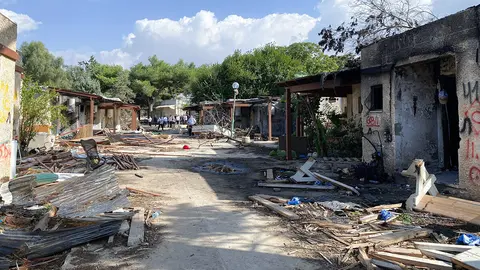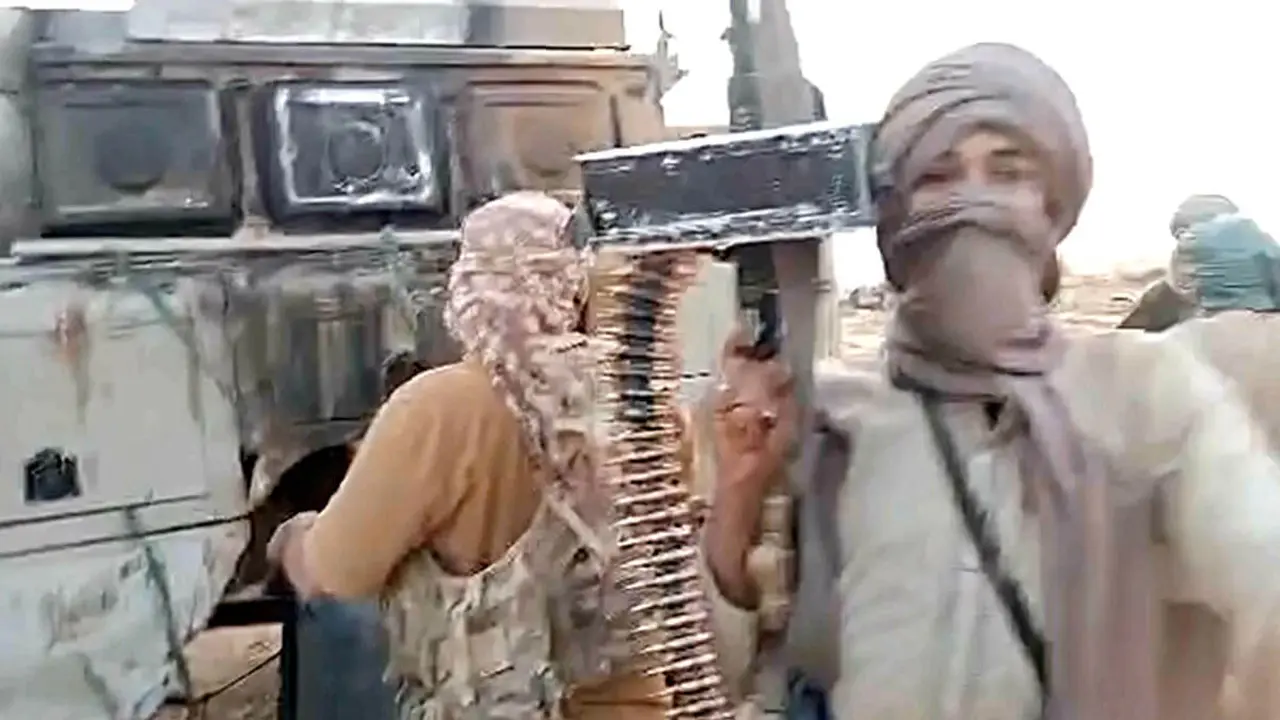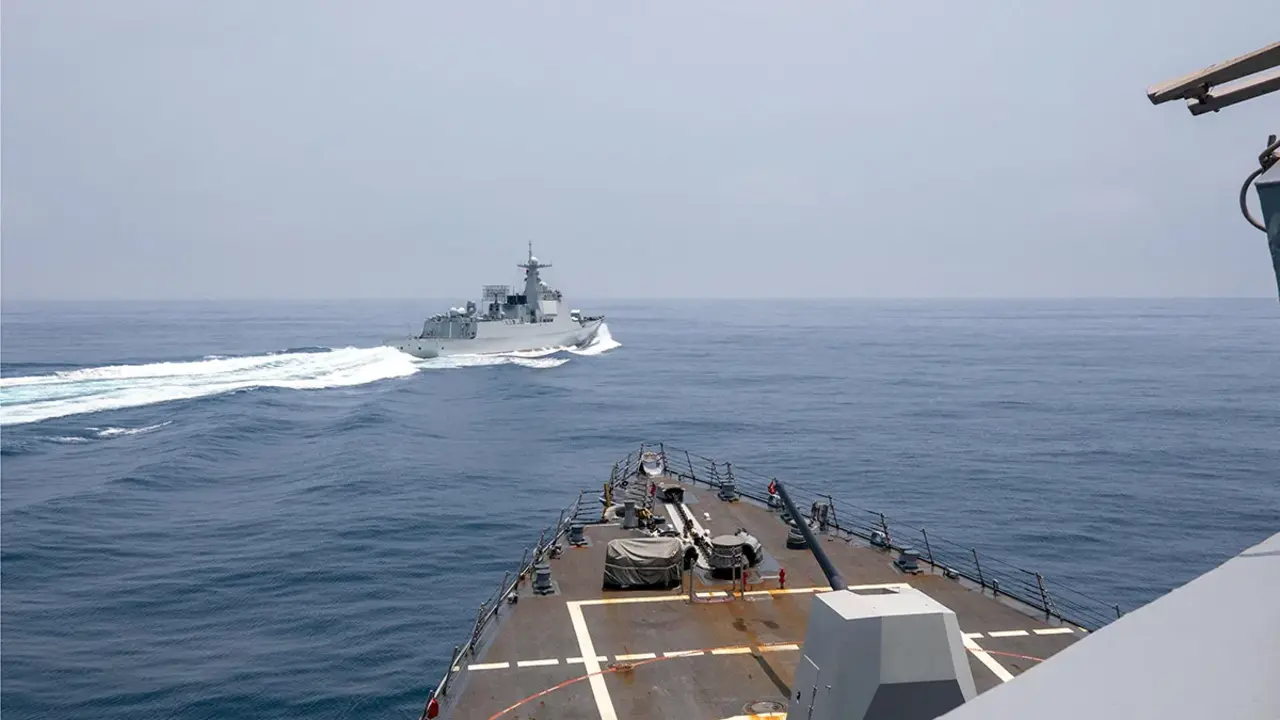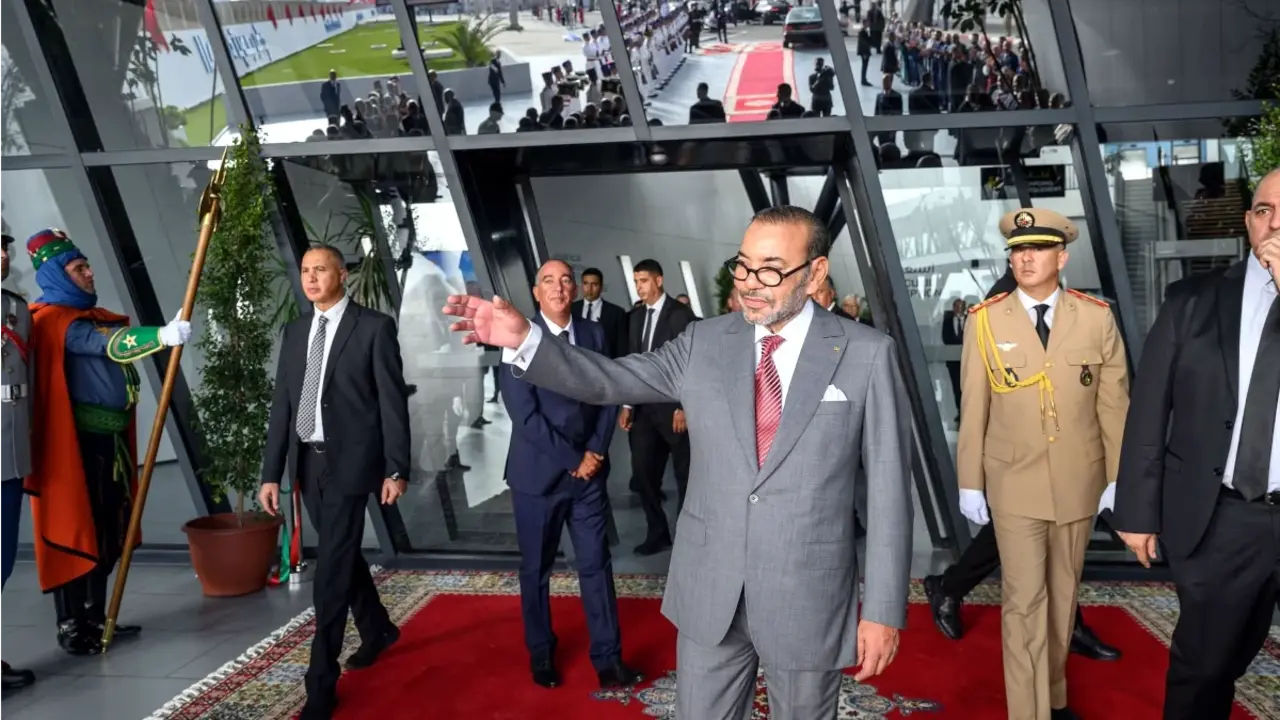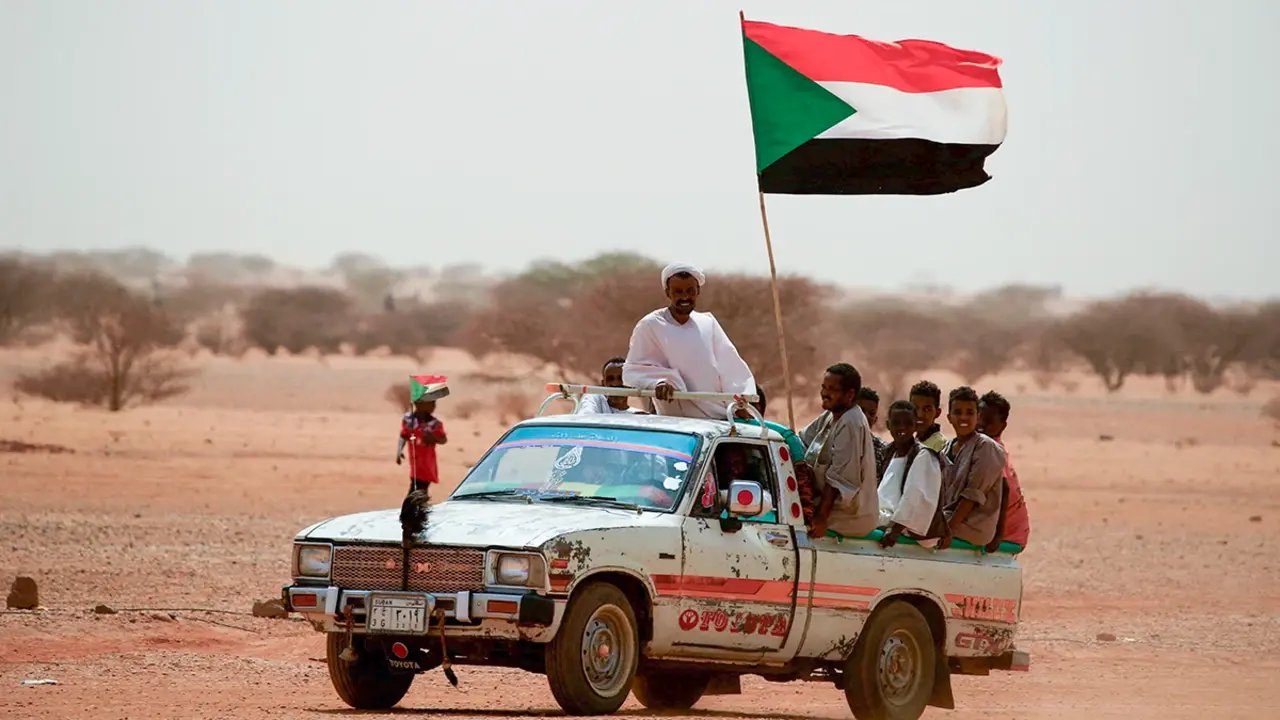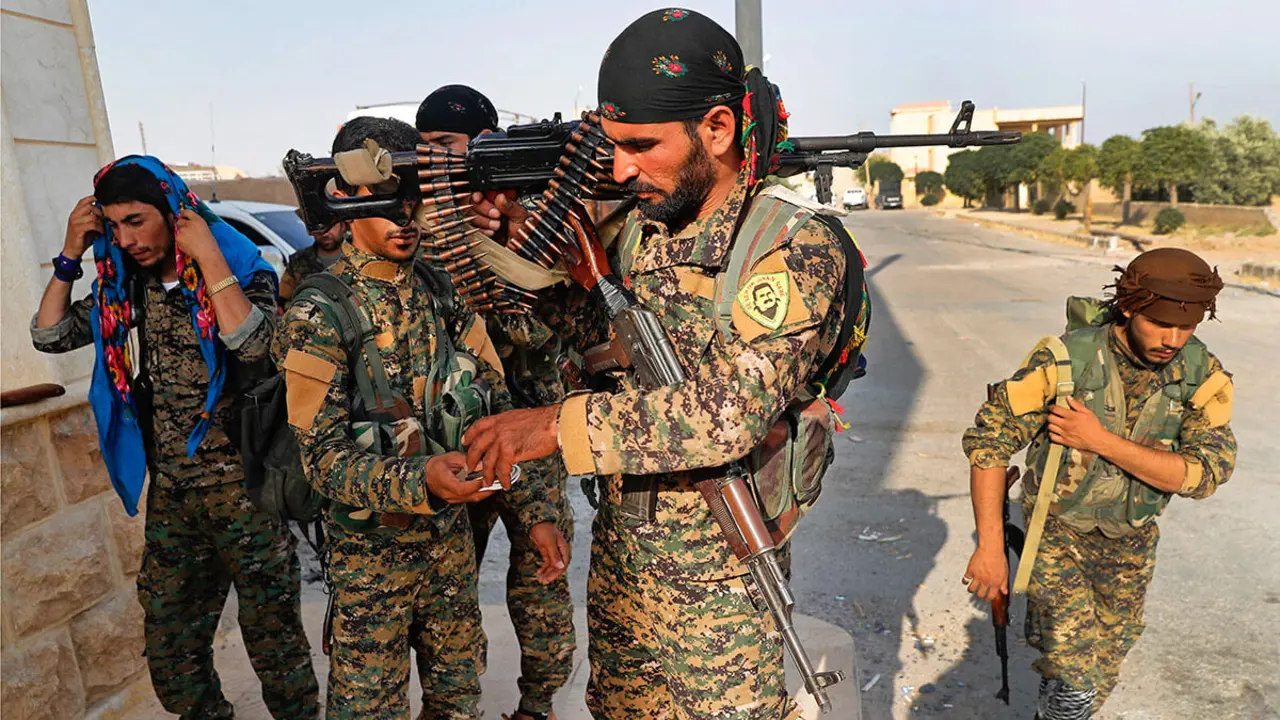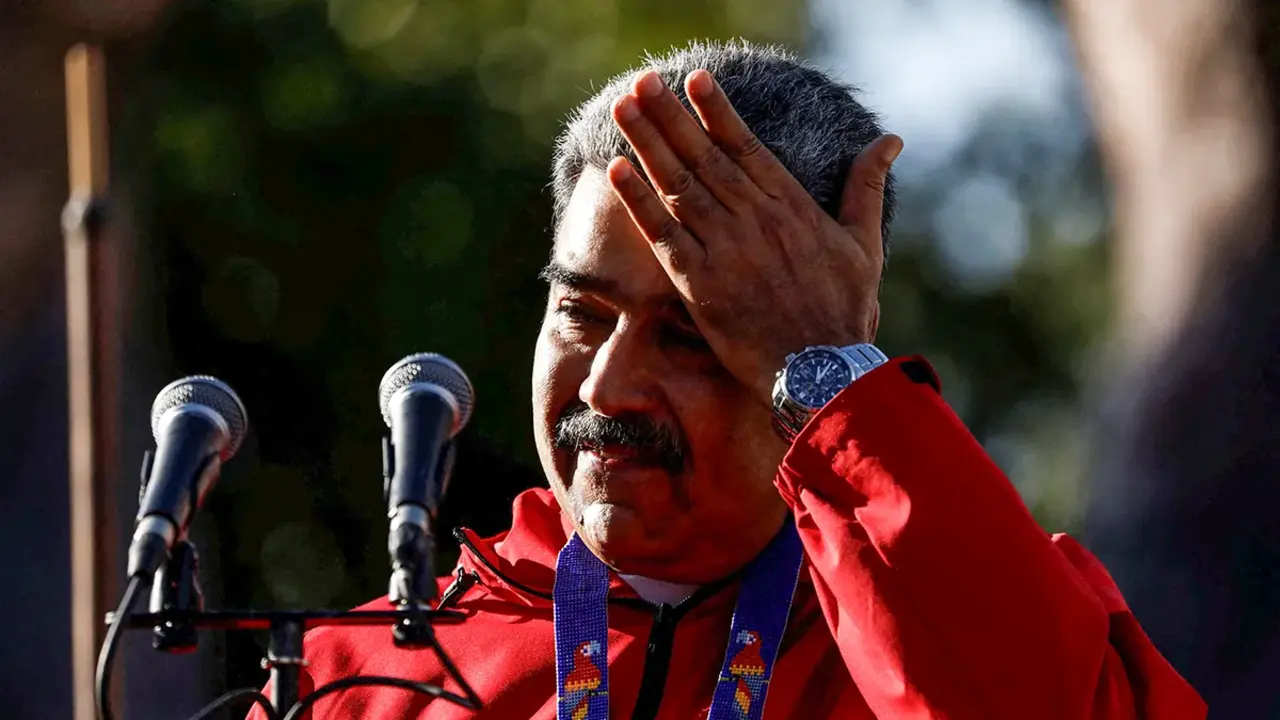It is still 7 October in Israel
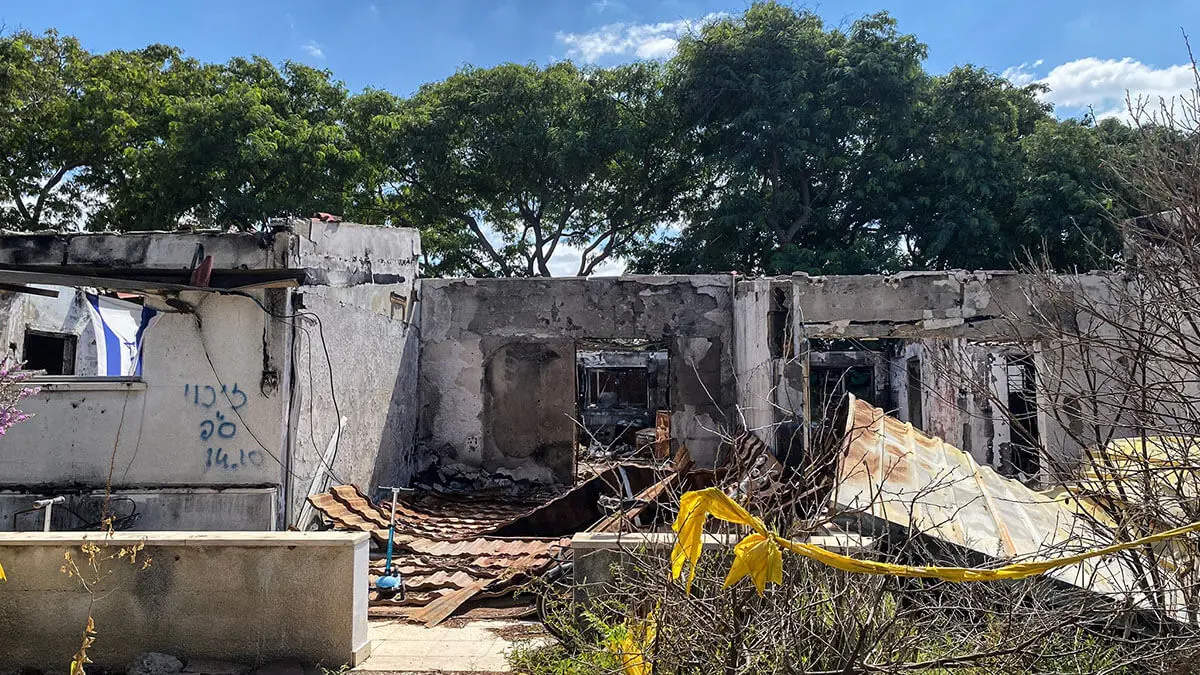
- ‘We didn't decide to start this war, we were forced to fight’
- ‘If I can feel compassion at my hardest time, I ask the world to do the same‘
- ‘Whoever denies it, come and see it with your own eyes'
- 7 October transformed the geopolitical scene in the Middle East
A year to the day after 7 October, Israel prepares to commemorate the harshest day in its history while society remains mired in collective trauma. It is paradoxical to think of all the things that have happened in Israel and the Middle East since that fateful Saturday, while in the communities under attack time has stood still, as if that day had never ended.
This is also the feeling of many Israelis who, despite not having suffered the massacres directly, have experienced the anxiety and anguish of these long 12 months, as the war has expanded with Hezbollah and the Iranian regime.
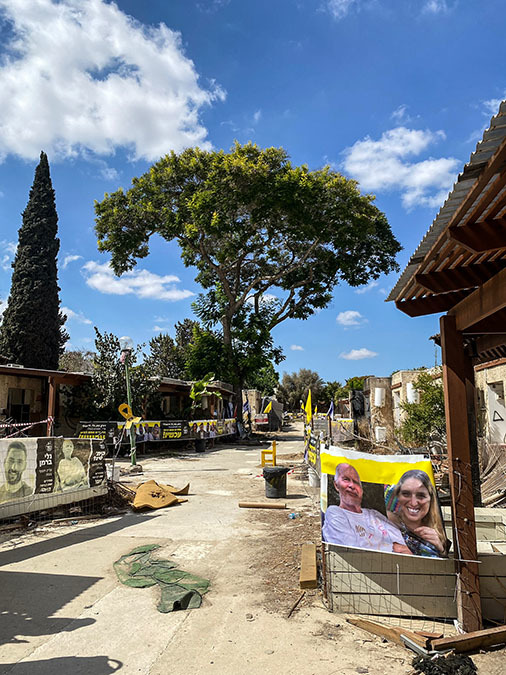
‘It doesn't feel like a year has passed. For me, it's still October 7, not a day goes by that I don't relive it in one way or another,’ says Shahar Tzuk, former president of Kfar Aza, one of the kibbutzm attacked. For Tzuk, coming back now is ‘comforting and painful’, as he feels he has lost everything after the attack.
During its land, air and sea invasion, Hamas killed 1,200 people - mostly civilians - and abducted 240 others, 101 of whom are still being held in the Gaza Strip.
Tzuk was not in Kfar Aza on the day of the attack, and if she had been, she is certain that the terrorists would have killed her because of the LGTBI+ flag at the entrance of her house, a building that no longer feels like home.
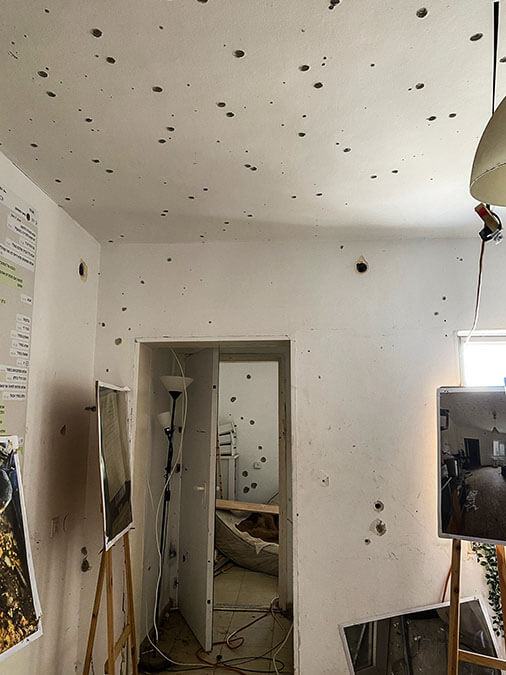
Israel's southern communities are known for their liberal values and pacifism, something Hamas also destroyed on 7 October. ‘I will no longer see peace between the two peoples, and I don't think my children will either,’ Tzuk acknowledges, adding that he will continue to “fight for their values” and that he is not happy to see people suffering or starving, in reference to the humanitarian crisis in Gaza caused by the war. ‘People feel they have lost hope,’ he adds.
Another major challenge facing Israel in the aftermath of the attacks is the loss of trust of kibbutzim citizens in the state and the security forces. Many, like Tzuk, say they feel alone and abandoned, during and after the massacres. ‘I don't trust the army, we feel alone,’ admits Tzuk.
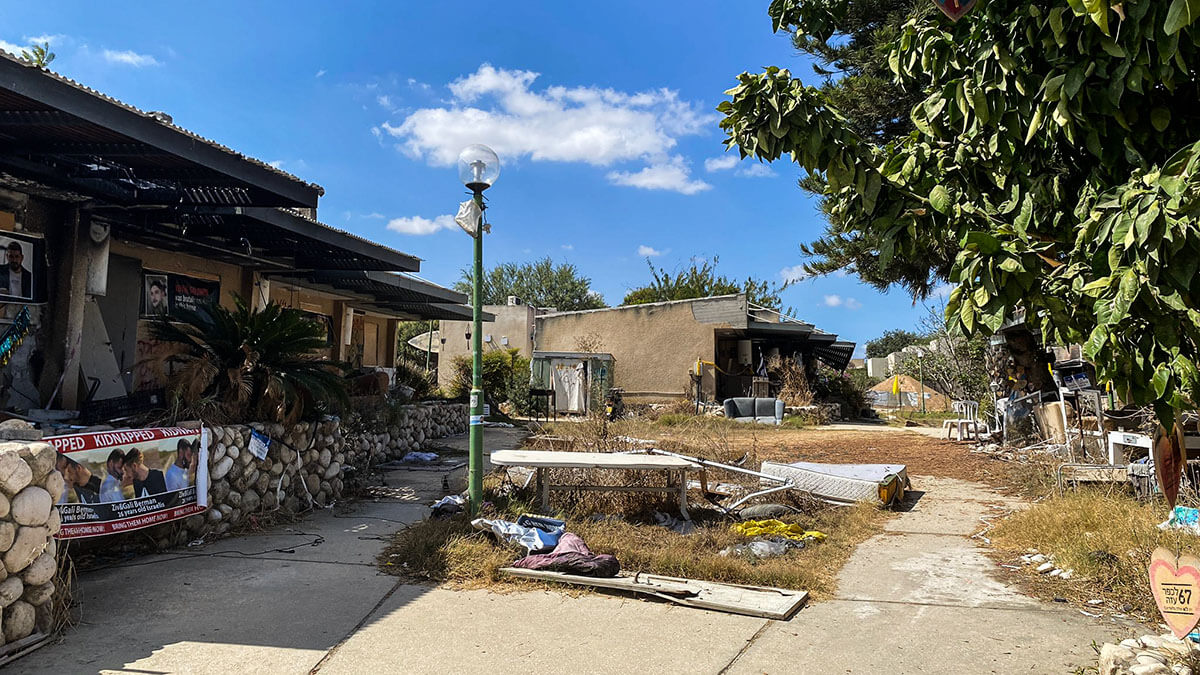
In addition to Kfar Aza, Nir Oz was another of the kibbutzim attacked by Hamas on 7 October. Of the 101 hostages still held in Gaza, 29 are residents of this farming community. Among them is Oded Lifshitz, an 83-year-old journalist and peace activist. Lifshitz, like other members of the kibbutzim, was involved in transporting sick children from Gaza to hospitals in Israel for treatment.
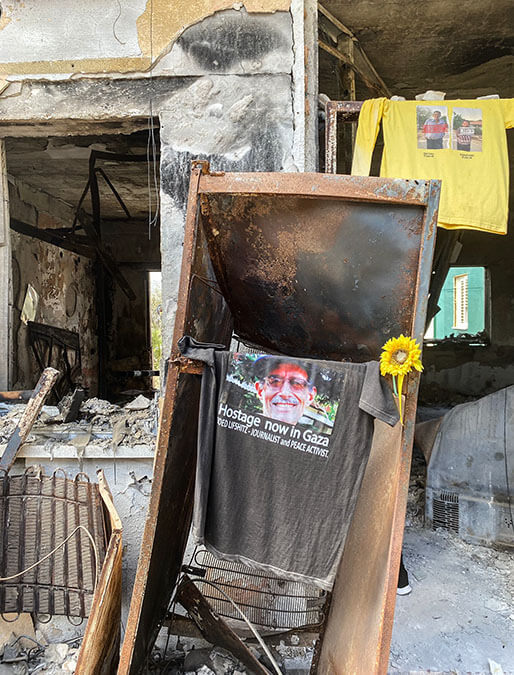
‘The only way I think he can stay alive is if some family who knows him is taking care of him,’ says Rita Lifshitz, one of his relatives. Lifshitz believes that events in Lebanon and elsewhere in the region are distracting attention from the hostages, and she calls for continued action by the international community to make Gaza a better place in the future. ‘We need peace in the Middle East,’ she stresses.
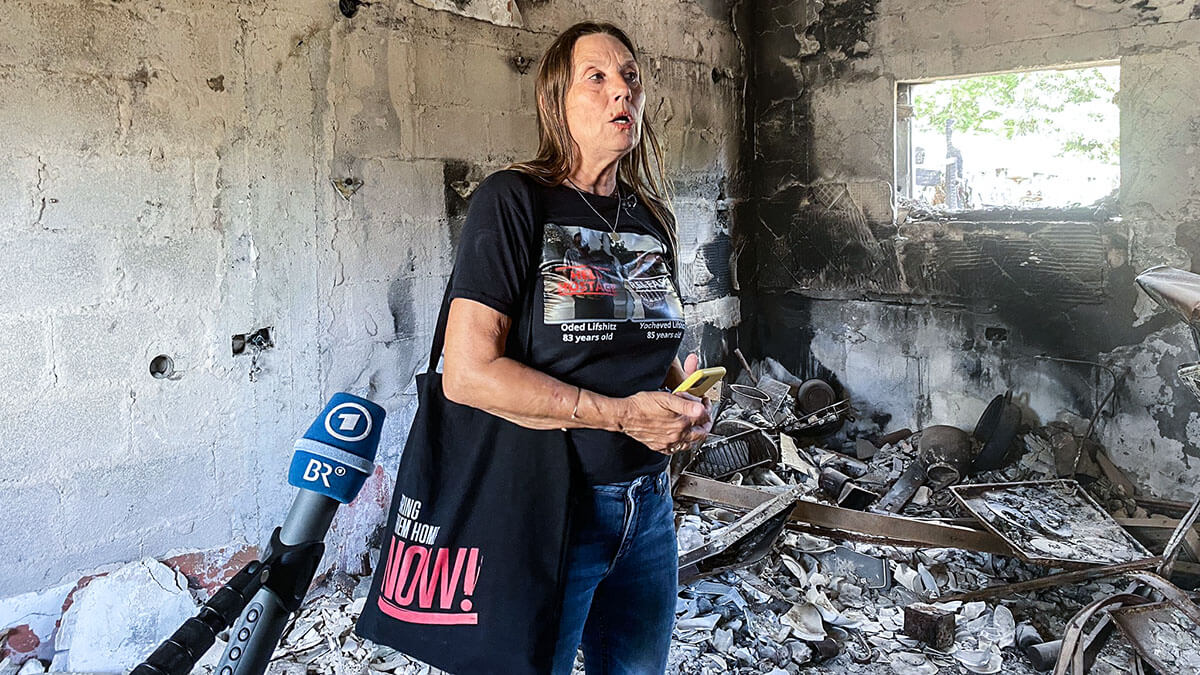
‘We didn't decide to start this war, we were forced to fight’
Another Nir Oz resident who remains kidnapped is Ohad Yahalomi. His wife, Batsheva, was also initially taken hostage but managed to escape with her daughters. Their 12-year-old son Eithan, however, was forcibly taken to Gaza and did not leave until the November truce, 52 days after the attack.
During those weeks, the little boy went through hell. He was forced to watch videos recorded by the terrorists of the massacres they committed, he was assured that Israel had disappeared, and if he cried he was threatened with weapons. ‘Considering how they treated the children, I don't know how they are treating the men,’ Batsheva reflects.
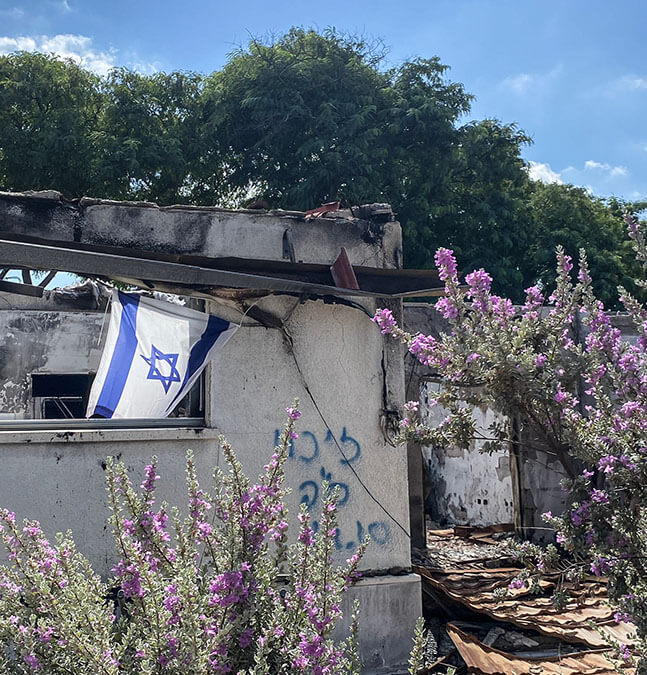
After the attack, Batsheva moved with his children to another kibbutz in central Israel, acknowledging that he is unable to live in Nir Oz. ‘It's like living in Auschwitz. I can't think of living here again. We don't feel safe,’ she laments.
‘We didn't decide to start this war, we were forced to fight. Nobody wants to fight, we want to live in peace,’ concludes Batsheva, expressing the feelings of most Israelis. ‘The war in Gaza is horrible, but we didn't choose it,’ she adds from inside what was once her home.
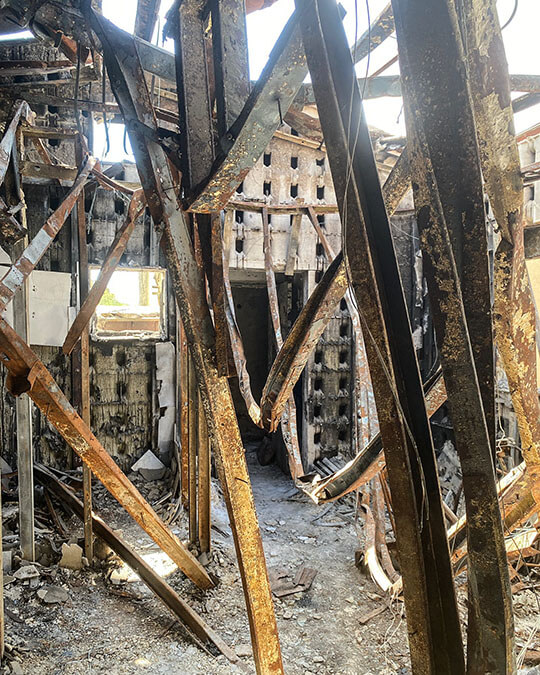
‘If I can feel compassion at my hardest time, I ask the world to do the same‘
Of all the heartbreaking images of 7 October, one that shocked the world and Israeli society the most was that of Shirin Bibas, barefoot, with her two young children - baby Kfir and Ariel, who turned 5 in captivity - wrapped in a blanket surrounded by several armed men.
Nearly a year after her abduction, Shirin's cousin, Yifat Zeiler, continues to plead with the world and organizations like the Red Cross and UNICEF to help her embrace her cousin and her children again.
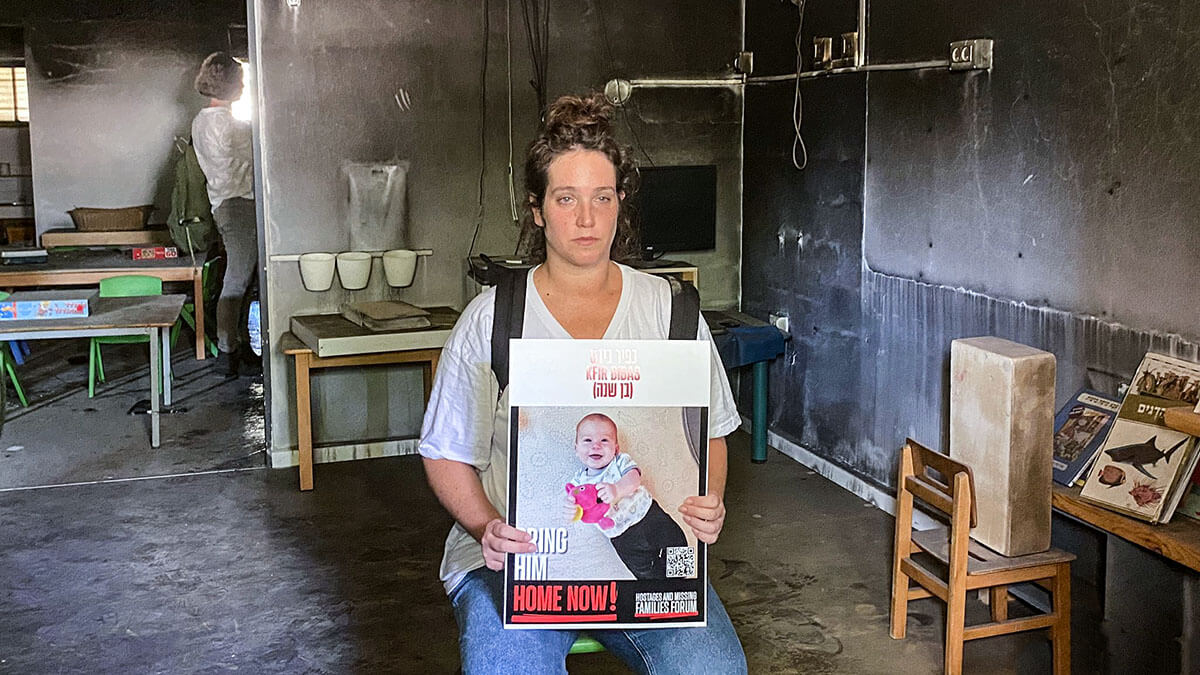
‘These children don't have a political opinion, they are just children who deserve to live,’ Zeiler recalls, saying she has cried for “all the children who have died in this war” because she was raised to ’believe in peace, to believe in a two-state solution. ‘My family taught me that there are people like us on the other side who just want to coexist, but something broke inside me on 7 October,’ she says.
In the midst of this situation, Zeiler wonders what is going to happen now. ‘One generation is going to be raised to hate and another to fear,’ she adds, assuring that she knows what her responsibilities are as an Israeli mother: “to raise my children to respect whoever is different from them”.
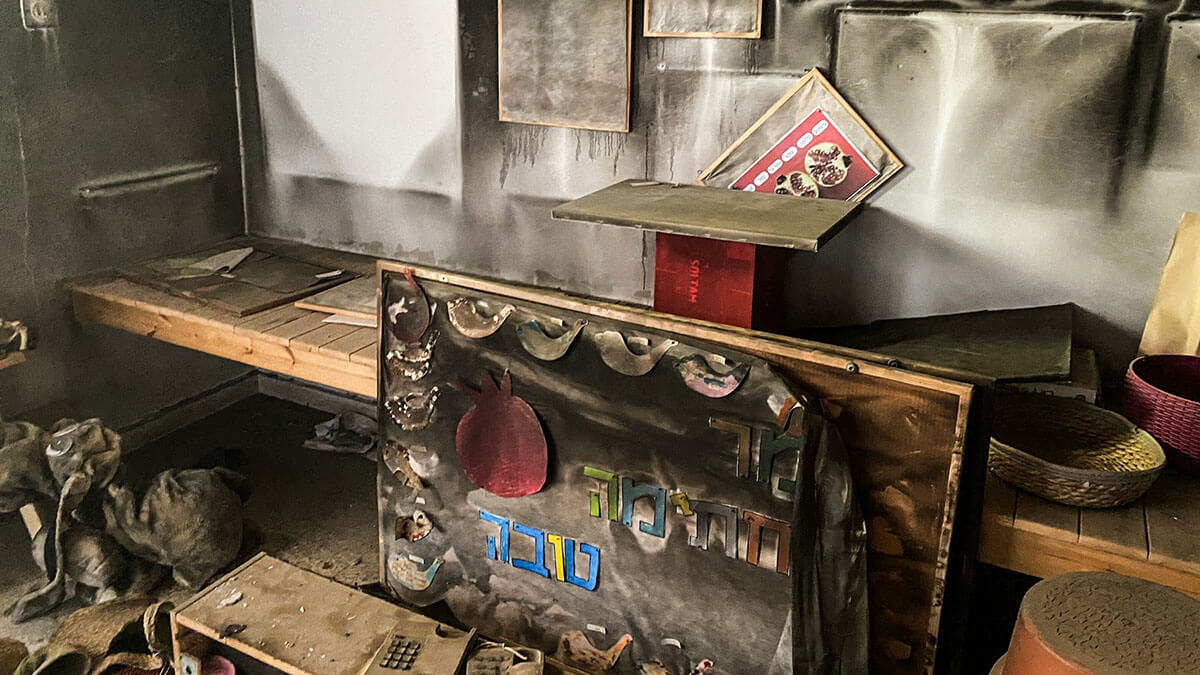
‘If I can feel compassion in my hardest moment, I ask the world to do the same. Remember that children are just children, and Kfir and Ariel are children who were born on one side of the border,‘ says Shirin Bibas’ cousin.
Despite all that has happened, Zeiler assures that ‘the Palestinians are not Hamas’, so it is necessary to believe in humanity and ask for justice. ‘It's hard to negotiate with terrorists, but we need another deal,’ Zeiler urges from the Nir Oz kindergarten where Ariel used to go.

‘Whoever denies it, come and see it with your own eyes'
What was meant to be a party in nature to celebrate life turned into the biggest massacre of October 7, with more than 360 people - mostly young people - killed and 40 taken hostage.
The Nova festival, near the border with the Gaza Strip, was a party attended by hundreds of young idealists and pacifists from Israel and many other parts of the world. They just wanted to dance.
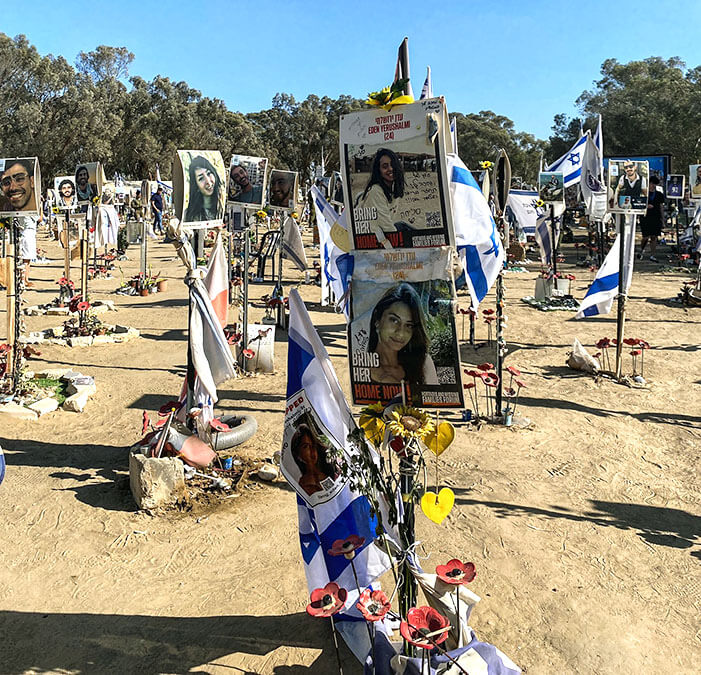
At 6:30 in the morning, the first rockets began to be fired from the Palestinian enclave. But the worst was yet to come. Soon after, mobs of terrorists stormed the festival, murdering, torturing and raping hundreds of young people.
‘We found headless, burnt bodies,’ recalls Simcha Greiniman, a member of ZAKA, a non-governmental organisation whose aim is to recover and identify the bodies of people killed in terrorist attacks, road accidents and other disasters.
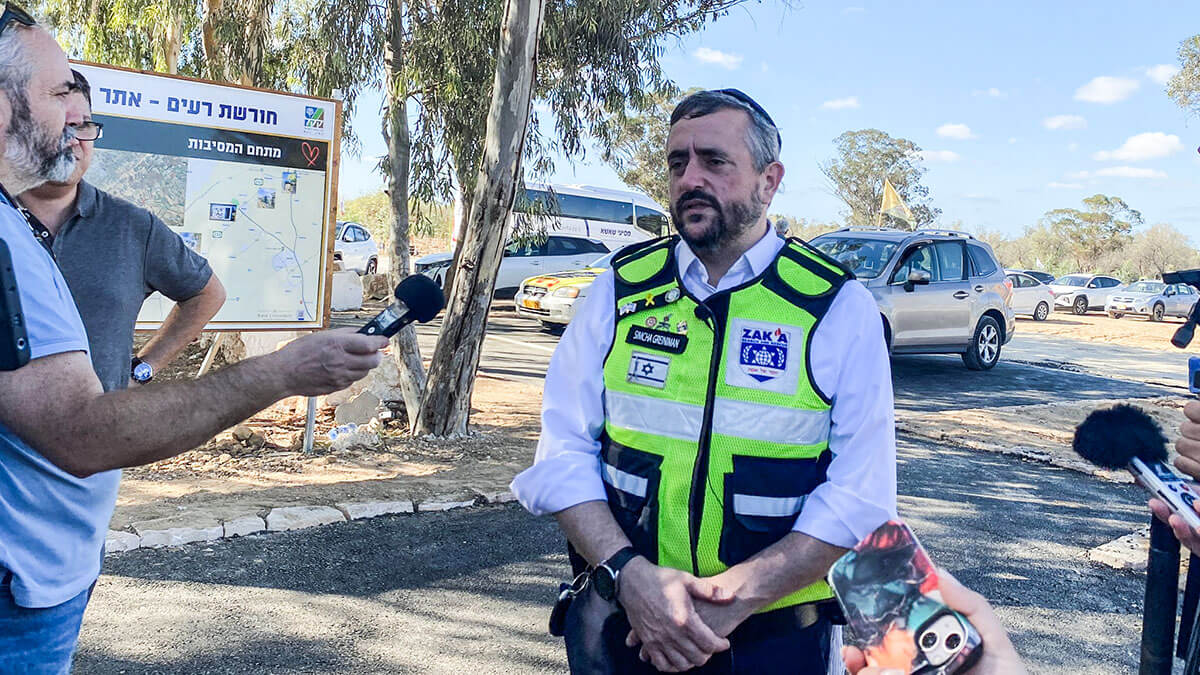
ZAKA, although a Jewish organisation, has worked in Christian and Muslim countries, such as Turkey, where it moved after the 2023 earthquake. ‘Honouring the dead is considered an act of true virtue. In Judaism, it is considered the greatest mitzvah (good deed) one can perform,’ they explain.
After the 7 October massacres, hundreds of ZAKA volunteers, mostly ultra-Orthodox, worked to recover all the remains of the victims with respect and dignity. For this reason, ZAKA members witnessed the most horrific and harshest scenes shortly after the massacres, such as charred bodies, corpses with signs of sexual assault or mutilation. ‘Anyone who denies what happened should come and see for themselves,’ says Greiniman.
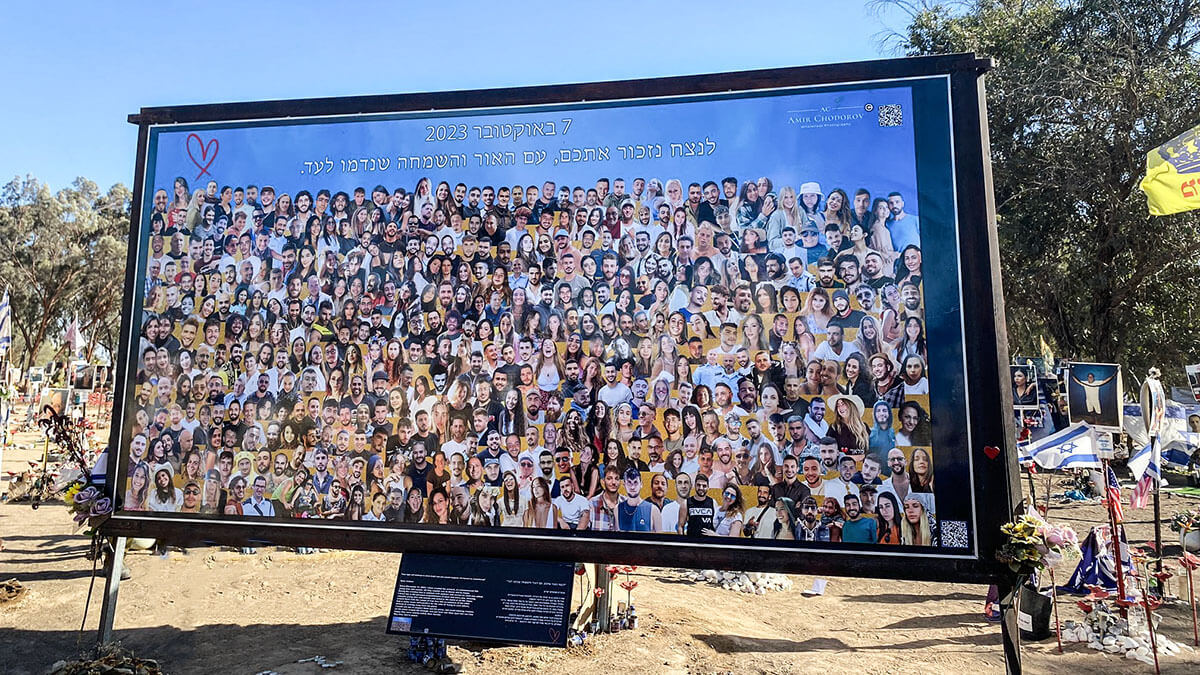
7 October transformed the geopolitical scene in the Middle East
7 October completely changed Israel's DNA. The wounds will take many years to heal, and many may never heal. In addition to the collective trauma within the country, Jews around the world warn of a dangerous rise in anti-Semitism, claiming they do not feel safe wearing religious symbols, such as a Star of David or a kippah.
In the Middle East, the Hamas attack has triggered a series of events that have pushed the region to the brink of full-scale war. All proxies of the Islamic Republic of Iran - Hamas, Hezbollah, the Houthis in Yemen and pro-Iranian militias in Iraq and Syria - have united against Israel, frequently launching attacks against the Jewish state.
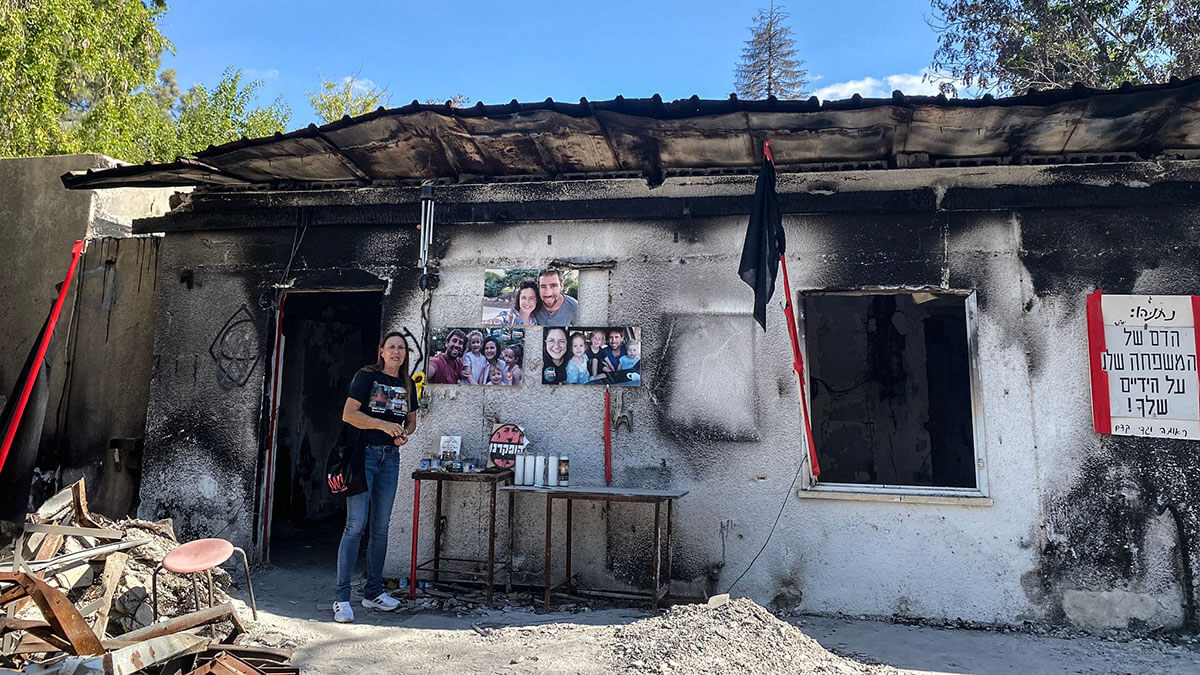
In response, Israel has attacked Hizbollah positions in Lebanon - entering the land of cedars for the first time since the summer of 2006 - as well as infrastructure used by the Houthis in Yemen.
On the other hand, as witnessed during Iran's unprecedented attacks on Israel, the Arab-Israeli coalition is standing firm in the face of threats from the Tehran regime. Despite the fact that one of the goals of 7 October was to thwart a peace agreement between Israel and Saudi Arabia, normalisation is ongoing, while the cooperation created in the wake of the Abraham Accords is being strengthened.
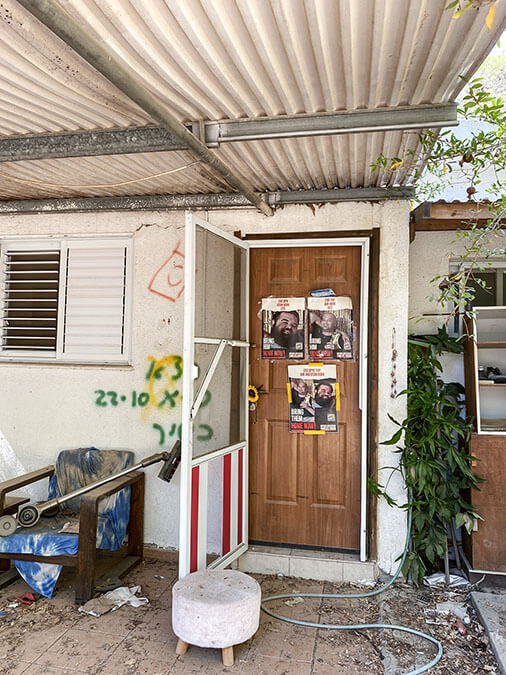
Israel is fighting a war for its existence that will completely transform the geopolitical landscape of the Middle East. A war that will not end until the Hebrew state fulfils its objectives: the safe return of all citizens to their homes - both in the north and the south - and the elimination of all threats on its borders in order to ensure that 7 October will never happen again.

